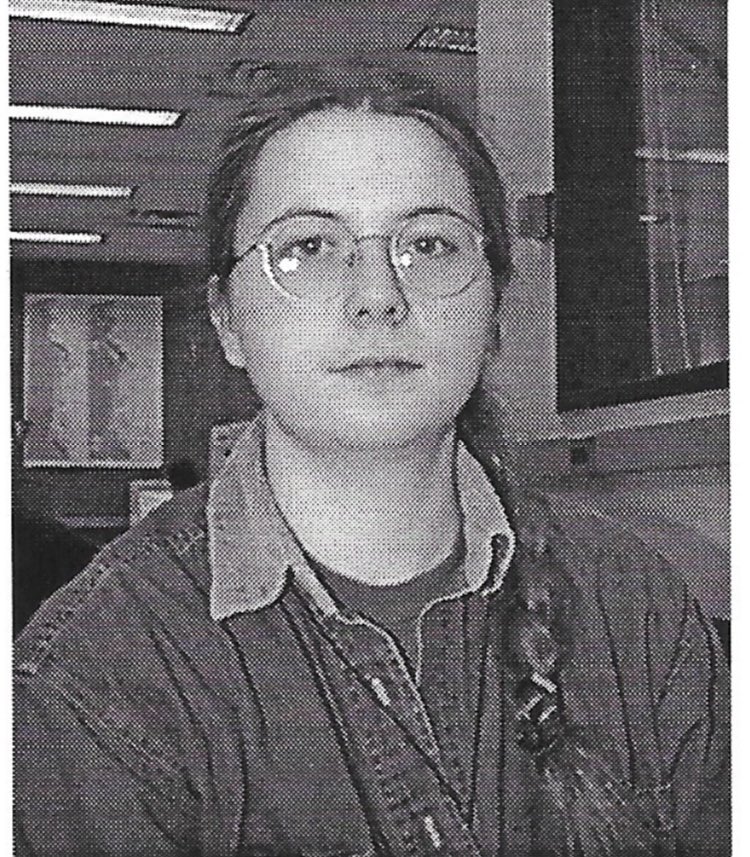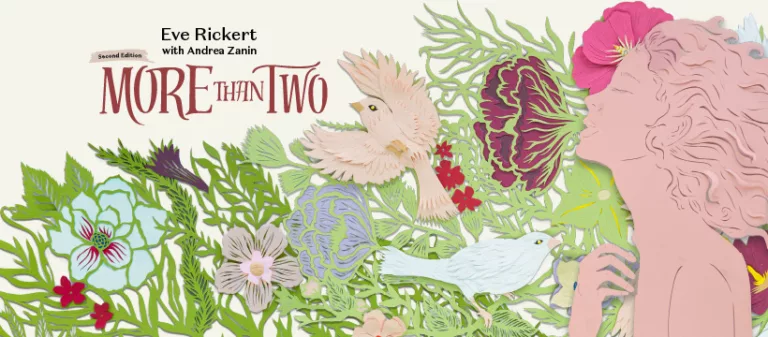“We will all do good things and bad things, and we will all hurt the people we love. Sadly, we will probably hurt them the most in the service of what we believe is right. What makes you good is not perfection in action or strictness to code, but the willingness to question, to change, and to listen to your heart when your life stops matching it.”—Shelly
For many survivors of abuse or assault, the worst trauma doesn’t come from the abuse itself, but from the way it is handled by the community afterward. A safe and supportive community can facilitate healing—and the converse is also true. It is just so easy when we view someone through the lens of “victim” to frame them in a way that allows us to further strip them of agency, at the time when they most need to have it supported. Unless we are actively working to counteract it with our every breath, rape culture, misogyny and patriarchy make it almost impossible to genuinely centre and support survivors while consistently treating them as whole human beings with agency—as equals and peers rather than objects to be displayed, examined and preserved behind glass.
If we want to be really serious about addressing abuse, we need a survivor’s bill of rights.
I expect there are a lot of people who won’t agree with my proposed list below, but it’s not written for them: it’s written for the survivors who thought they were out safely and now are wondering what the fuck is happening to me and is there something wrong with me (there isn’t) as the people around them try to “help” in ways that are deeply destabilizing.
It’s not you, and it’s not okay.
This is a starting place. I expect others can make it better, so I am releasing the text below under a Creative Commons (CC BY-NC-SA) licence: feel free to adapt and build on it, as long as you credit me and link to the original, share your new work under the same terms, and don’t monetize it.
A Survivor’s Bill of Rights
I have the right:
To define what help and support look like for me, and what kind of help, support and advocacy I need.
To decide whom I want in my support circle, and to distance myself from people who are not helping me.
To define my own emotions, thoughts and experiences of harm, and not to have my experiences reduced to such psychological catch-phrases as “triggered,” activated” or “re-enacting”; not to have others tell me what my motives are for telling my story.
To not be diagnosed, evaluated or otherwise “therapized” by anyone with whom I am not in a professional, consensual therapeutic relationship.
To not have others justify my abuse or excuse my abuser because I have character flaws, have made mistakes, or have caused harm myself.
To honestly name harm I am currently experiencing, and not have others blame it on past abuse or trauma, or question my experience of reality because of what I have survived.
To choose whether, how, when and to whom I describe my abuse or name my abuser.
To give and withdraw informed consent to the sharing of my story.
To honestly tell my story privately or publicly without risk of ongoing harassment or abuse, and without inviting deeper scrutiny of my character, behaviour or flaws than others in my community receive.
To act in accordance with my own values, and to have others act in accordance with my values when purporting to act in my name or on my behalf.
To be held to the same standards of accountability for harm I have caused as others in my communities are held when they cause similar harms; not to be held to a higher standard because I am out as a survivor or have named abuse.
To be imperfect in how I describe my abuse and express my feelings about it, and to be imperfect as a person; not to have the validity of my claims or worthiness of support judged or dismissed based on my imperfections. This includes not being attacked by people who don’t like it when I express anger or emotion, and not to have my attempts at communication dismissed if I do not modulate my tone to the extent others desire to prevent their discomfort.
To not be expected to perform labour to make others comfortable when they discuss my abuse, or to be expected to ease their experience.
To protect my own safety and well-being in the ways I find most appropriate— including self-defence, fawning, placating, silence or avoidance. Not to be pushed into conflict or confrontation with my abuser or judged for how I choose to survive.
To decide what actions I want to take or do not want to take in response to my abuse or concerning my abuser, including whether or not to involve the police, the courts or other state mechanisms.
To decide for myself what I want people in my support circle to share with me when they become aware of actions taken by or directed at my abuser or enablers; not to have information that may affect me withheld from me against my will or to “protect” me.
To be included in conversations about me and in decisions that affect me.
To expect others not to take action against my abuser in my name, except by my request or with my consent.
To seek spaces where I do not come into contact with my abuser or their words; to distance myself from people and groups who cannot or will not provide those spaces.
To request or seek protection from enablers or “flying monkeys” who harm me.
In cases of cross-accusations, to have those who wish to take action engage deeply with all the available information and to inform themselves about DARVO and abusers who claim victimhood, or to seek out analysis from those who have done so.
To decide what survivorhood means to me rather than performing it to someone else’s standard.
To process and heal on my own timeline.
To experience ordinary conflict, grief and loss, relationship struggles, mental health issues, and ups and downs of life without everything being linked to or blamed on my trauma or my abuser, or have extra meaning inferred because I am a survivor.
To decide how to define myself beyond being a “survivor,” or to choose an alternate identity.
To not fear retaliation for asserting my rights, setting boundaries, or asking questions.
Principles
Survivor support is not transactional. I don’t owe others for supporting me or for holding my abuser accountable. I am not less worthy of support if I have not supported others — or not supported all others who have asked for my support (as may often be the case with “celebrity survivors” upon whom many others may lean heavily, or survivors who have limited resources, both material and intangible). The whole community is responsible for addressing abuse.
The restitution/repair to which a survivor is entitled should not depend on their willingness to cede their agency, voice or anger, to subscribe to the values of a perpetrator’s process, to act conciliatory, or to perform gratitude.
I’ve had every one of the rights on this list violated — and I’ve violated many of them myself. I suspect most people have. I suspect we’ve done a lot more damage than we realize, or can even really come to terms with, in our attempts to “help.” But we can stop now.

Note: After I wrote this, I discovered “A Recovery Bill of Rights for Trauma Survivors”, which shares a lot of characteristics with mine. This tells me a couple things: that I’m on the right track with my own list, and that others have found the same problems widespread enough to find a need to address them in this way. It’s very good, and worth reading and bookmarking.
Like what you’re reading? Buy my book!



